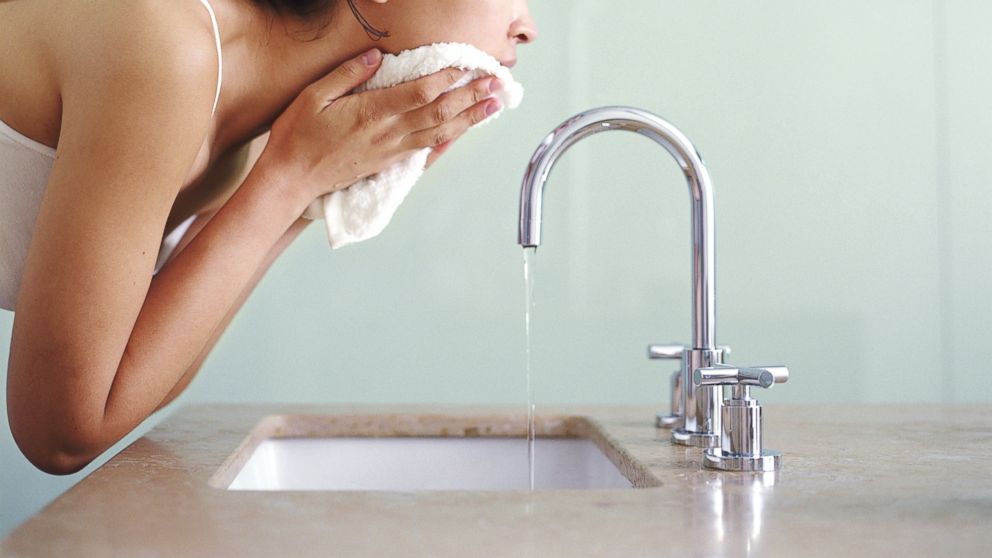6 Adult Acne Myths Busted
Get the facts and banish blemishes for good.

— -- intro: If you've ever had a pimple, you know how frustrating it can be to find a solution (and if you've never had a pimple, congratulations: you're the luckiest person alive).
An overwhelming number of acne products are available (all making the same promise of clear skin), and yet, the harder you try to zap your zits, the more red and painful they can become.
In order to truly banish blemishes, you'll need to distinguish the difference between the old wives' tales and tested truths. That's where we come in.
Read on to learn how you can eliminate acne once and for all.
21 Reasons Why You're Losing Your Hair
quicklist: 1category: Adult Acne Myths Bustedtitle: Myth: Your diet has nothing to do with acneurl:text: "Two landmark but flawed studies conducted in the '60s and '70s found that chocolate was not associated with acne," says Jennifer Burris, doctorate candidate at New York University, and author of a Journal of the Academy of Nutrition review on diet and acne. "These studies were so popular that people concluded diet had nothing to do with acne and stopped researching the topic for the next 40 years."
Today, researchers are finding that there is indeed a connection between food and acne. Example: Burris and her team looked at the diets of more than 200 people and found that those who ate more sugary foods, dairy products, and unhealthy fats, as well as less fish, were more likely to have moderate to severe acne.
30 Healthy Foods That Could Wreck Your Diet
quicklist: 2category: Adult Acne Myths Bustedtitle: Myth: If you suffer from acne, you should never eat chocolateurl:text: Even though there's a connection between diet and acne, it's not exactly fair to throw chocolate under the bus.
"Essentially any food with a high glycemic index can increase blood cortisol levels and worsen acne," says Mona Gohara, MD, associate clinical professor of dermatology at the Yale School of Medicine. (That includes sweets, breads, and pastas.) "Refined carbs cause your insulin levels to spike, which leads to increased sebum production and clogged pores."
The good news: You can still have chocolate!
"The problem isn't the cocoa itself, it's the sugar and dairy that's added," says Marguerite Germain, MD, dermatologist in Charleston, SC, who suggests eating dark chocolate with a cocoa content 70% or higher. "The higher the percentage of cocoa, the lower the glycemic index."
quicklist: 3category: Adult Acne Myths Bustedtitle: Myth: Acne is a teenager problemurl:text: It's not a given that you'll grow out of acne. In fact, a survey of more than 1,000 adults published in the Journal of the American Academy of Dermatology found that 50 percent of women between 20 and 29 years old, 35 percent of women between 30 and 39 years old, and 26 percent of women between 40 and 49 reported having acne. (Note: Adult acne is more common in women than men.)
You can blame the same surge of hormones you experienced as a teen.
"Your estrogen increases at your first period and peri-menopause," says Dr. Gohara. "The hormone causes an increase in oil production, which ultimately causes bacterial inflammation and pimples."
That's why it's common for women to have acne as teenagers and again later in life.




